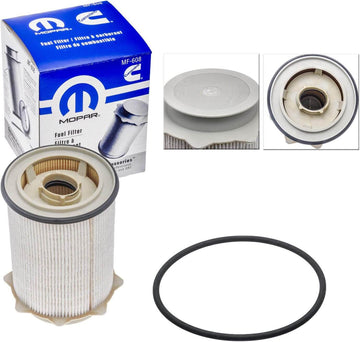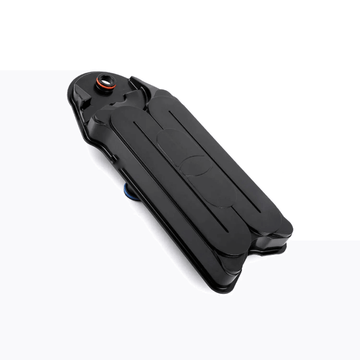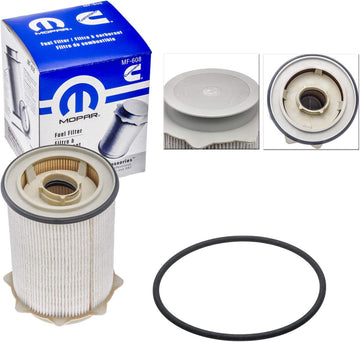When it comes to vehicle maintenance, one of the most crucial components to keep in mind is the oil filter. It plays a vital role in ensuring your engine runs smoothly by removing contaminants and particles from the engine oil. One of the leading options for oil filters is the Mopar oil filter, which is specially designed for Chrysler, Dodge, and Jeep vehicles. But how often should you replace your Mopar oil filter, and what is the average mileage it can last? In this blog post, we’ll explore the factors influencing the lifespan of a Mopar oil filter, how to tell when it needs to be replaced, and how you can make sure your vehicle continues to perform optimally.
What is a Mopar Oil Filter?
Before diving into how long a Mopar oil filter lasts, it’s essential to understand what it is. Mopar oil filters are Original Equipment Manufacturer (OEM) parts designed specifically for Chrysler, Dodge, and Jeep vehicles. Mopar is the service, parts, and customer care division of Stellates, and their oil filters are engineered to meet the precise specifications of your engine.
These fuel filters are designed to trap debris, contaminants, and other impurities from your engine oil, ensuring that your engine runs smoothly and efficiently. By using a Mopar oil filter, you can be confident that you are using a high-quality product that fits your vehicle and provides optimal performance.
Average Mileage for a Mopar Oil Filter
The average mileage for a Mopar filters can vary depending on several factors, such as the type of oil you use, the driving conditions, and your vehicle’s specific engine requirements. In general, a Mopar oil filter should be replaced every 3,000 to 7,500 miles. However, this range can fluctuate based on the following considerations:
1. Type of Oil Used
The type of oil you use in your vehicle can significantly impact the lifespan of the oil filter. Here’s how different oils affect the oil filter’s longevity:
-
Synthetic Oil: Synthetic oils are known for their extended lifespan, and as a result, synthetic oil filters can typically last longer. When using synthetic oil, your Mopar oil filter may last closer to the upper end of the recommended range, up to 10,000 miles or more.
-
Conventional Oil: If you're using conventional oil, the oil filter may need to be changed more frequently, generally around 3,000 to 5,000 miles.
2. Driving Conditions
Your driving habits and conditions can also have a significant effect on the lifespan of the Mopar oil filter. If you mostly drive in stop-and-go traffic, endure extreme temperatures, or drive in dusty or rough conditions, your oil filter may need to be replaced sooner. On the other hand, highway driving in more stable conditions could lead to less frequent oil filter changes.
3. Engine Type and Maintenance
Different engines may require different oil change intervals. Some engines may have unique oil filtration needs, and this can influence how long the Mopar oil filter lasts. It’s always a good idea to consult your vehicle’s owner manual to determine the exact replacement schedule for your oil filter. Additionally, regular maintenance can help increase the lifespan of your Mopar oil filter.
How to Tell When It’s Time to Replace Your Mopar Oil Filter
While the mileage recommendations are a helpful guideline, you should also look for other signs that it’s time to replace your Mopar oil filter. These signs include:
-
Decreased Engine Performance: If you notice a drop in engine performance or hear unusual noises, it could indicate that the oil filter is clogged or not functioning as efficiently.
-
Dirty Oil: Check the colour and consistency of your engine oil. If it appears excessively dirty or gritty, the oil filter may no longer be able to remove contaminants.
-
Oil Leaks: If you see oil leaking around the oil filter, it could be a sign that the filter is damaged or improperly installed.
-
Engine Light On: In some vehicles, the check engine light might illuminate if the oil filter is not doing its job properly.
If you notice any of these signs, it’s best to replace the oil filter as soon as possible to avoid damaging the engine.
Benefits of Using Mopar Oil Filters
Mopar oil filters are specifically designed to fit Chrysler, Dodge, and Jeep vehicles, offering several advantages over generic aftermarket filters:
-
OEM Quality: Mopar oil filters are designed to meet the exact specifications of your engine, ensuring the best protection and performance.
-
Enhanced Filtration: These filters are built with high-quality materials to trap more contaminants, providing better protection for your engine and oil.
-
Perfect Fitment: Mopar oil filters are made to fit your vehicle’s engine perfectly, eliminating any concerns about compatibility or poor fitment that could come with aftermarket options.
-
Durability: Mopar filters are designed to last longer than many aftermarket options, reducing the frequency with which they need to be replaced.
Mopar Oil Filter vs. Aftermarket Filters
When deciding whether to choose a Mopar oil filter or an aftermarket alternative, here’s a breakdown of the key differences:
Mopar Oil Filter:
-
Fitment: Designed specifically for Chrysler, Dodge, and Jeep vehicles, ensuring a perfect fit.
-
Filtration: High-efficiency filtration that traps more contaminants, ensuring optimal engine protection.
-
Durability: Built to last longer, offering greater durability and fewer replacements.
-
Price: Generally more expensive, as it’s an OEM part.
-
Warranty: This comes with OEM warranty coverage, giving you peace of mind for the life of the filter.
Aftermarket Oil Filter:
-
Fitment: This may not be vehicle-specific and could result in compatibility issues with some models.
-
Filtration: Filtration quality can vary greatly depending on the brand and is often not as effective as Mopar filters.
-
Durability: Typically less durable and may need to be replaced more frequently.
-
Price: Generally cheaper than Mopar oil filters, but this can come at the cost of lower quality.
-
Warranty: Warranty coverage varies by manufacturer, and it may not be as reliable as Mopar’s OEM warranty.
How to Replace a Mopar Oil Filter
Replacing a Mopar oil filter is an easy maintenance task that many vehicle owners can handle on their own. Here are the basic steps for replacing your Mopar oil filter:
Tools You Will Need:
-
Oil filter wrench
-
Socket wrench
-
Oil catch pan
-
New Mopar oil filter
-
Fresh engine oil (if changing oil as well)
Step-by-Step Guide:
-
Prepare the Vehicle: Turn off the engine and let it cool. Lift the vehicle if necessary using a jack.
-
Drain the Oil: Place the oil catch pan underneath the oil pan, remove the drain plug, and allow the oil to drain completely.
-
Remove the Old Oil Filter: Use an oil filter wrench to remove the old Mopar oil filter.
-
Install the New Mopar Oil Filter: Lubricate the rubber gasket of the new Mopar oil filter with a small amount of fresh oil. Screw the new filter in place, but don't overtighten.
-
Refill the Engine Oil: Replace the drain plug and add the recommended type and amount of oil to the engine.
-
Check for Leaks: Start the engine and check for any oil leaks around the filter and drain plug.
FAQs
1. How often should I replace my Mopar oil filter?
The average recommendation for replacing a Mopar oil filter is every 3,000 to 7,500 miles. However, this can vary based on your driving conditions, the type of oil used, and your vehicle’s maintenance schedule.
2. Can I use a Mopar oil filter on a non-Mopar vehicle?
Mopar oil filters are designed specifically for Chrysler, Dodge, and Jeep vehicles. While they may technically fit other vehicles, it is not recommended to use Mopar filters on non-Mopar vehicles as they are optimized for Mopar engines.
3. How can I tell if my Mopar oil filter needs to be replaced?
Signs that your Mopar oil filter needs replacing include reduced engine performance, dirty or gritty oil, oil leaks, or a check engine light. Additionally, if you are approaching the recommended mileage range for an oil change, it’s a good idea to replace the filter.
4. Are Mopar oil filters better than aftermarket filters?
Mopar oil filters are designed specifically for Mopar vehicles and offer superior filtration and durability compared to many aftermarket filters. Although they tend to be more expensive, they are often worth the investment for engine longevity and performance.
5. How do I know which Mopar oil filter fits my vehicle?
You can find the correct Mopar oil filter part number by consulting your vehicle’s owner's manual or by visiting an auto parts store. Many auto parts retailers also have online tools that allow you to search for the correct filter based on your vehicle’s make and model.





